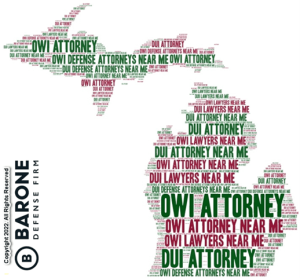Search
Should I Refuse the Field Sobriety Tests?
If you are stopped and the police smell alcohol or marijuana, then there’s a good chance you will be asked to step out of the car to perform field sobriety tests. If you fail one or more of these tests, then you will probably be arrested for OWI, or Operating While Intoxicated.
Michigan has not made it unlawful to refuse field sobriety tests, and if you refuse them, then the police will not be able to use any poor performance against you at trial. Your attorney might also argue that without field sobriety tests the police lacked probable cause to make a lawful arrest. If successful, your case could actually be dismissed. So there is a real benefit to refusing the field sobriety tests.
On the other hand, the prosecutor might argue that you refused the tests because you knew you’d fail them. This is sometimes called a “consciousness of guilt.” Much has been written about consciousness of guilt arguments, and some courts believe that these arguments violate due process. For example, if you exercise your constitutional right to remain silent, this should not later be used against you. However, other courts have held that so long as you are advised ahead of time that your refusal will be used against you, then there is no due process violation.
 Michigan Criminal Defense Lawyer Blog
Michigan Criminal Defense Lawyer Blog


